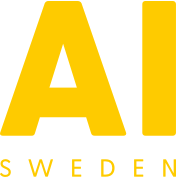AI and children
When using and developing AI solutions, we need to consider children’s rights in order to protect and support our youngest citizens. As one of 15 selected pilots globally, three Swedish municipalities, supported by AI Sweden and Lund University, are collaborating to stress test and provide input for the next iteration of a global policy guide on AI and children by UNICEF. In parallel, a national pre-study looks into how to establish a fertile ecosystem for how to promote children’s rights in AI development and policy.

In September last year, UNICEF published “AI for Children”, a policy guide to safeguard children’s rights in AI development. The municipalities Malmö, Helsingborg, and Lund are evaluating the UNICEF policy guidelines by applying them to existing policies, ongoing projects, and concepts.
The City of Helsingborg is evaluating its chatbot Laiban. Laiban is already in use in municipal day care centers, responding to children’s daily questions about meals, playtime, pick-up times, and more. It is designed to complement the teachers’ role, enabling children to develop independently. The city is exploring AI opportunities to extend the scope of the chatbot, keeping children’s rights at the core. Is it possible to use AI to develop a platform to objectively assess children’s development? Accessibility, independence, and social and environmental sustainability are key focus areas.
The municipality of Lund is evaluating the UNICEF policy recommendations against their existing policies. This will inform which working processes would benefit from applying AI. One of the real-time project candidates in Lund is the design of a new playground. How can AI encourage more movement and more play? Or promote inclusion, equal rights and integrity? The team is applying the principles defined in the AI for Children policy guide already in the concept development.
The City of Malmö is evaluating its urban planning process to ensure that it is child-centered. How can we use AI to develop our city to better respond to the needs of the children? Children’s development, inclusion, fairness, and safety are key principles being evaluated.
In a parallel national pre-study, partly financed by Vinnova, AI Sweden, Lund University and Mobile Heights are engaging with relevant public and private organizations to establish a fertile ecosystem for how to promote children’s rights in AI development and policy. Using insights from the three UNICEF pilot studies, and in dialogue with cross-sector stakeholders and experts, the team is building a strong network, and a proposal for how to organize the issue on a national level by activating the AI ecosystem. How do we collaborate, and share knowledge and experience to help accelerate AI solutions that consider the perspective and needs of the child?
AI Sweden is contributing with knowledge and expertise, as well as facilitating the evaluation process with UNICEF.
Final input will be presented to UNICEF during July-September 2021 and the results will be analyzed by researchers at Lund University, with findings included in future curricula.
During the fall of 2021, findings and outcomes will be presented at national and global events.
The other pilot projects providing input to UNICEF’s policy guidelines include the Government of Rwanda, the Alan Turing Institute, UK, Helsinki University Hospital, Finland, H&M Group, Sweden, and the Honda Research Institute Japan, to name but a few. Read more about the UNICEF pilot case studies here.
Facts
The project is a collaboration between AI Sweden, Lund University, and the cities of Malmö, Helsingborg, and Lund.
Project period: September 2020 - September 2021.

